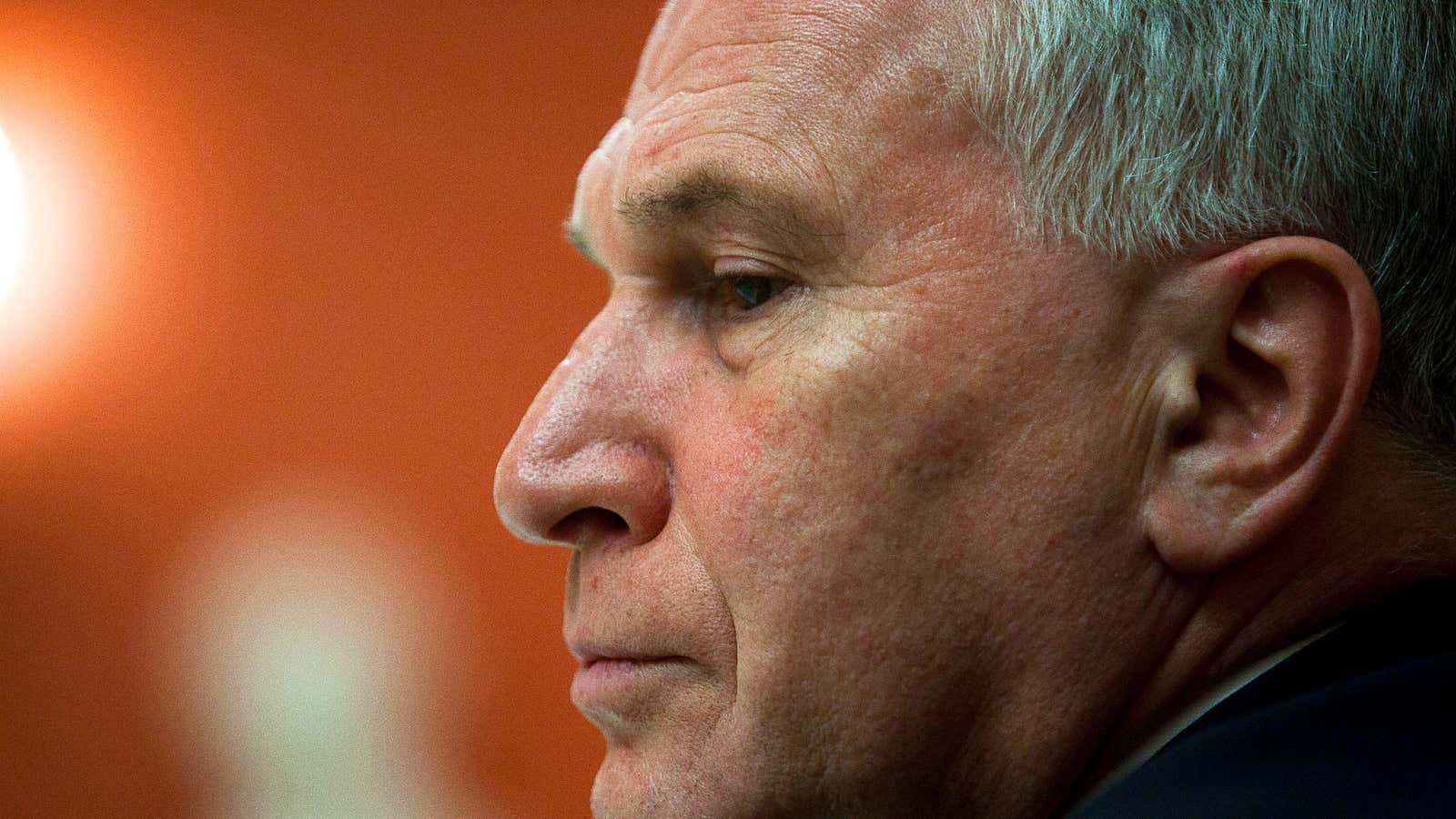Detained Russian opposition activist Alexey Navalny yesterday called on the US government to punish Russian President Vladimir Putin’s cronies:
Such sanctions should primarily target Mr. Putin’s inner circle, the Kremlin mafia who pillage the nation’s wealth, including Gennady N. Timchenko, head of the Volga Group; Arkady and Boris Rotenberg, influential businessmen and former judo sparring partners of Mr. Putin; Yuri V. Kovalchuk, a financier believed to be Mr. Putin’s banker; Vladimir I. Yakunin, president of Russian Railways; the oligarchs Roman A. Abramovich and Alisher B. Usmanov; and Igor I. Sechin and Aleksei B. Miller, the heads of Rosneft and Gazprom, respectively.
Apparently the call to action was heard, and the US is attempting to ratchet up pressure on Putin’s real inner circle. Today, some but not all of these names—Timchenko, the Rotenbergs, Kovalchuk, and Yakunin—have been added to the list of people who cannot travel or transact business in the United States. A spokesman for Timchenko’s oil-trading firm, Gunvor, told Quartz “it is clear no due diligence was performed to support this accusation,” and said that Putin has never been a beneficiary of the firm or its activities.
Kovalchuk’s financial institution, Bank Rossiya, also made the list. Mark Dubowitz, one of the architects of the Obama administration’s Iran sanctions, recently told Quartz that crippling a single Russian financial institution by cutting it off from international transactions would be a key symbol—”the ‘kill the chicken to scare the monkeys’ theory of financial sanctions.” NPR’s former Moscow correspondent, Gregory Feifer, describes Bank Rossiya, the chicken in question, in his recent book:
The deeply obscure but hugely powerful Bank Rossiya … has been accused of using secret offshore companies to channel state loans intended for the acquisition of a jaw-dropping collection of Gazprom assets. Former bank insiders have said shady privatizations of companies such as Gazporm’s Sogaz insurance firm enabled Bank Rossiya to suck billions of dollars’ worth of value from the parent company. Anders Aslund, a Swedish economist who is a keen observer of the hidden aspects of Russia’s economy, says the Putin circle’s “sheer asset-stripping” includes huge capital expenditures—$52 billion in 2011—on pipelines and other projects that cost far more than they would in other countries because much of the money is skimmed off.
The logic behind the sanctions is to squeeze the people who have benefitted from Putin’s reign. That is likely to be more effective than sanctioning Russian politicians who may not even have international financial interests. But by holding off on sanctioning Usmanov and the leaders of Russia’s two state-controlled oil firms, the US might be once again failing to send a strong enough message. Either that, or leaving itself room to escalate.
